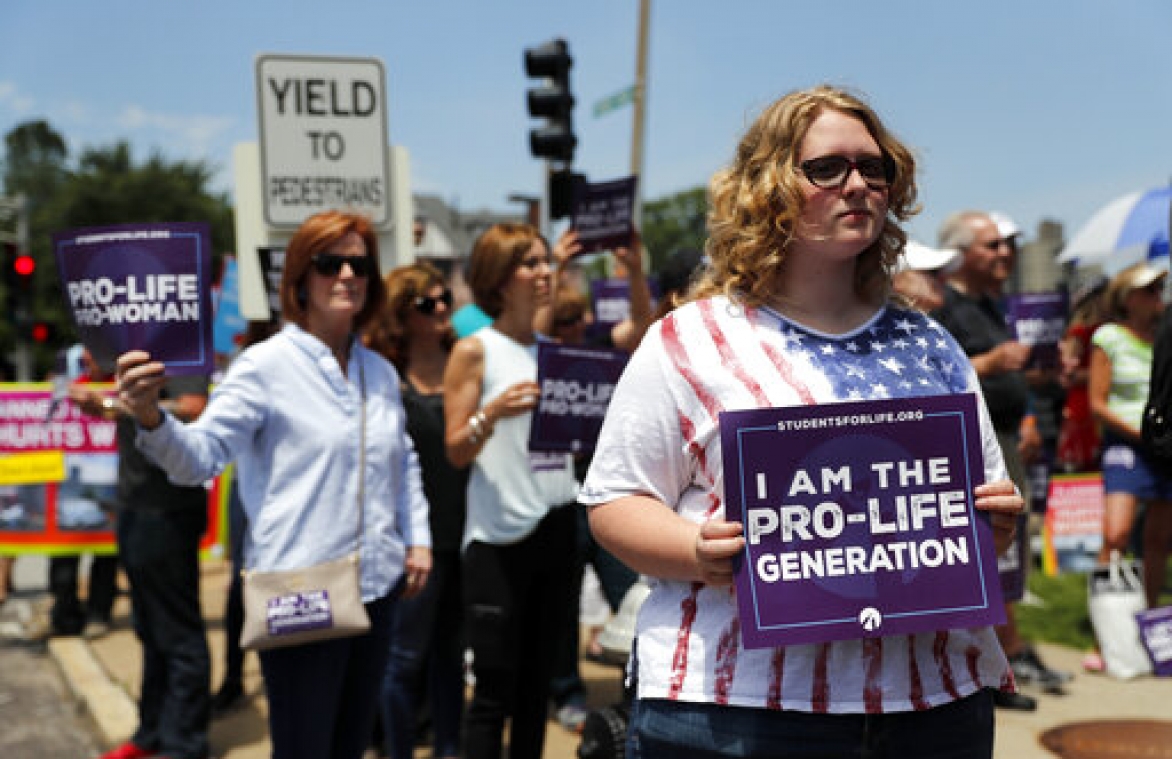The police officers in Westland, Michigan, who arrested a pro-life activist for allegedly talking about bombs while outside an abortion clinic were entitled to qualified immunity from the activist’s First Amendment lawsuit, a federal appeals court panel has ruled. The panel reasoned that the police officers reasonably could have believed that the activist uttered a true threat.
In August 2016, 57-year-old Kimberley Thames stood with three other people outside Northland Family Planning, an abortion clinic. Thames was holding a sign and advocating her pro-life beliefs. The clinic’s security guard approached her.
(See overview article on Abortion Protests and the First Amendment and case collection on Anti-Abortion Protests and Free Speech.)
Security guard heard pro-life protestor talking about bombs and called 911
The security guard claimed that Thames talked about bombs and said “I prophesy bombs are going to fall and they’re going to fall in the near future.” He also claimed she said “bombs, bombs on America, and bombs will blow up this building.”
The security guard became alarmed and called 911. Four police officers arrived on the scene. A police officer engaged Thames in conversation and asked Thames if she mentioned bombings at abortion clinics. Thames said no but was evasive in her answers. Thames would not tell the officer what exactly she said.
The senior officer at the scene ordered Thames arrested for making a terroristic threat under the section of the Michigan law called “Making Terrorist Threat or False Report of Terrorism.”
Woman spends 48 hours in jail, but released for insufficient evidence
The officers arrested Thames, booked her, and she spent 48 hours in jail. A detective later determined that, though there was probable cause to arrest, there was insufficient evidence to charge her with a crime and ordered her released.
Thames filed a federal lawsuit against the four officers, the police chief, and the city of Westland. She alleged false arrest and violation of her First Amendment rights. Both sides filed motions for summary judgment. The defendant police officers also filed a motion for qualified immunity, a defense that protects government officials from liability unless they violated clearly established constitutional or statutory rights.
A federal district court granted summary judgment to the police chief and city but denied qualified immunity to two of the officers. The federal district court reasoned that there was a key factual dispute as to whether Thames actually uttered a true threat and, thus, gave probable cause to arrest.
6th Circuit panel rules officers reasonably believed bomb threat existed
On appeal, a three-judge panel of the 6th U.S. Circuit Court of Appeals ruled that all of the individual police officers should be granted qualified immunity in its December 6, 2019, decision in Thames v. City of Westland.
Writing for the panel, Judge Alice Batchelder noted that Thames did use the word “bombs.” “She did not threaten brimstone, or God’s fiery wrath, or something that might be considered overzealous proselytizing – she said ‘bomb,” the judge wrote.
Furthermore, Batchelder noted that Thames was very evasive in her answers to the questioning police officer. The judge determined that the decision to arrest Thames was not unreasonable. The judge also determined the officers were entitled to qualified immunity on Thames’ other First Amendment claims, because the officers “arrested her for making what they reasonably accepted as being a bomb threat and for behaving in an evasive manner during the investigation of it.”
David L. Hudson Jr. is a First Amendment Fellow at the Freedom Forum Institute, and a law professor at Belmont University who publishes widely on First Amendment topics. He is the author of a 12-lecture audio course on the First Amendment titled “Freedom of Speech: Understanding the First Amendment” (Now You Know Media, 2018). He also is the author of many First Amendment books, including “The First Amendment: Freedom of Speech” (Thomson Reuters, 2012) and “Freedom of Speech: Documents Decoded” (ABC-CLIO, 2017).

